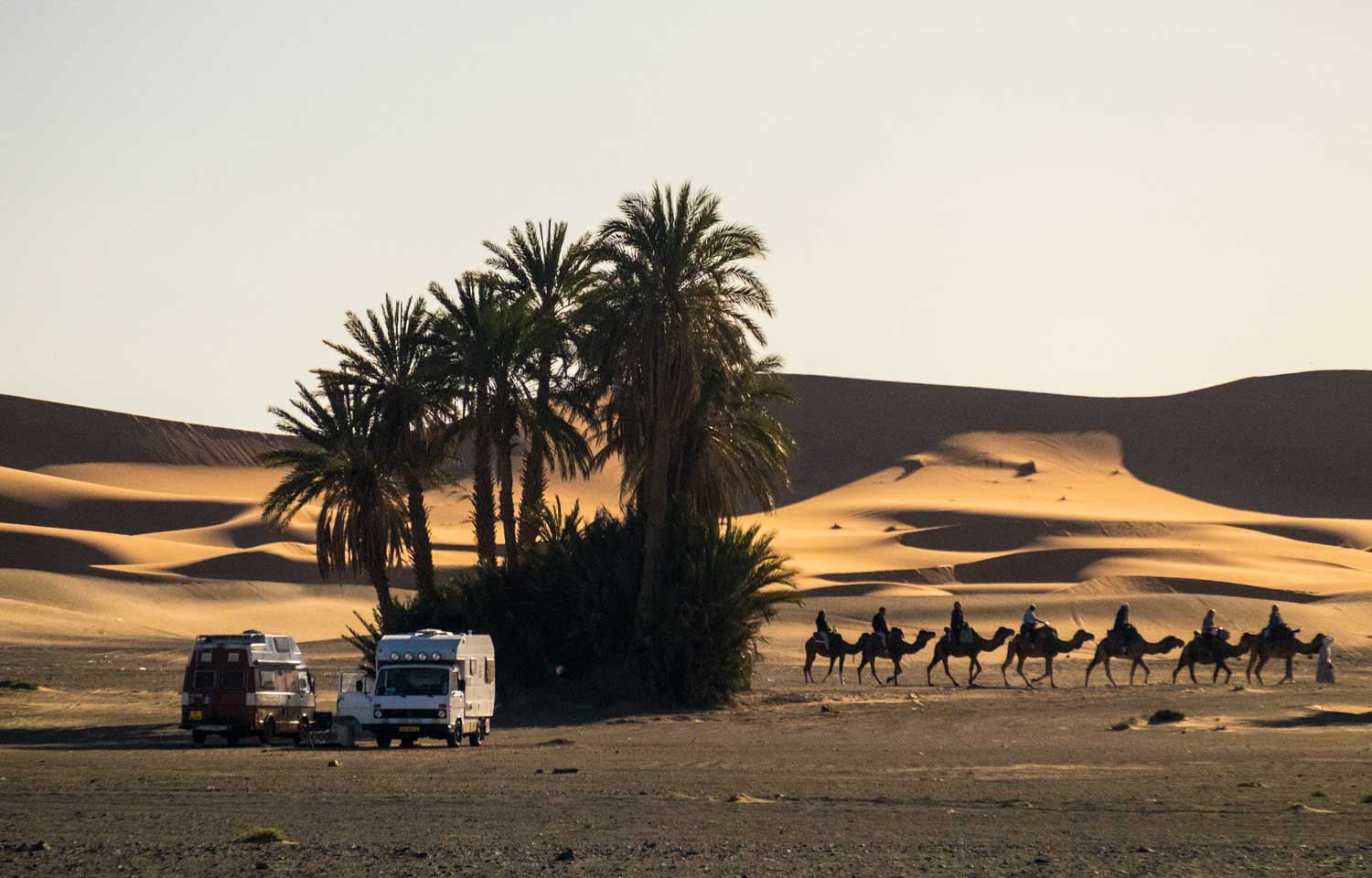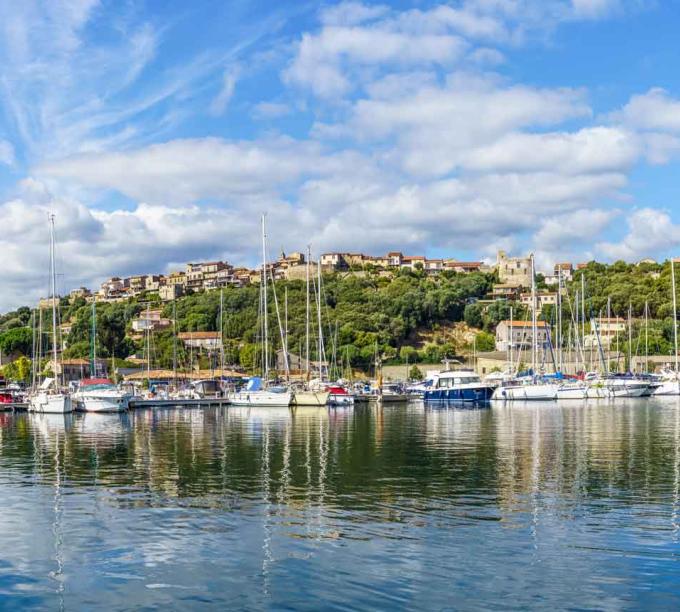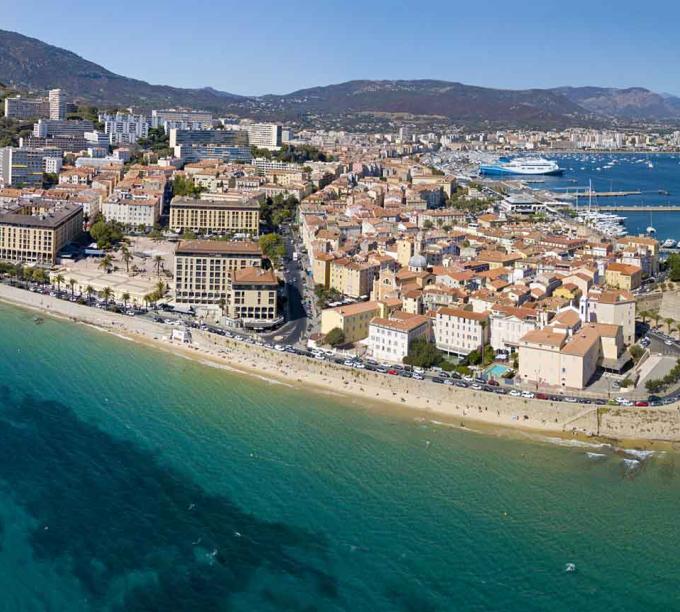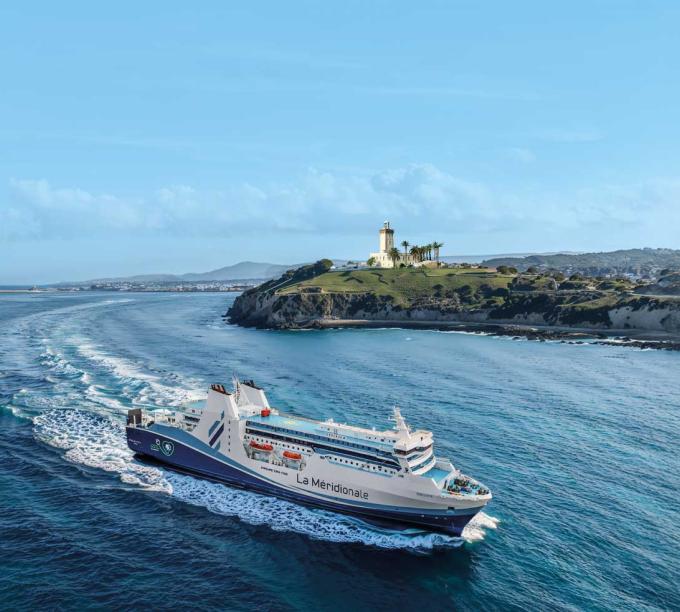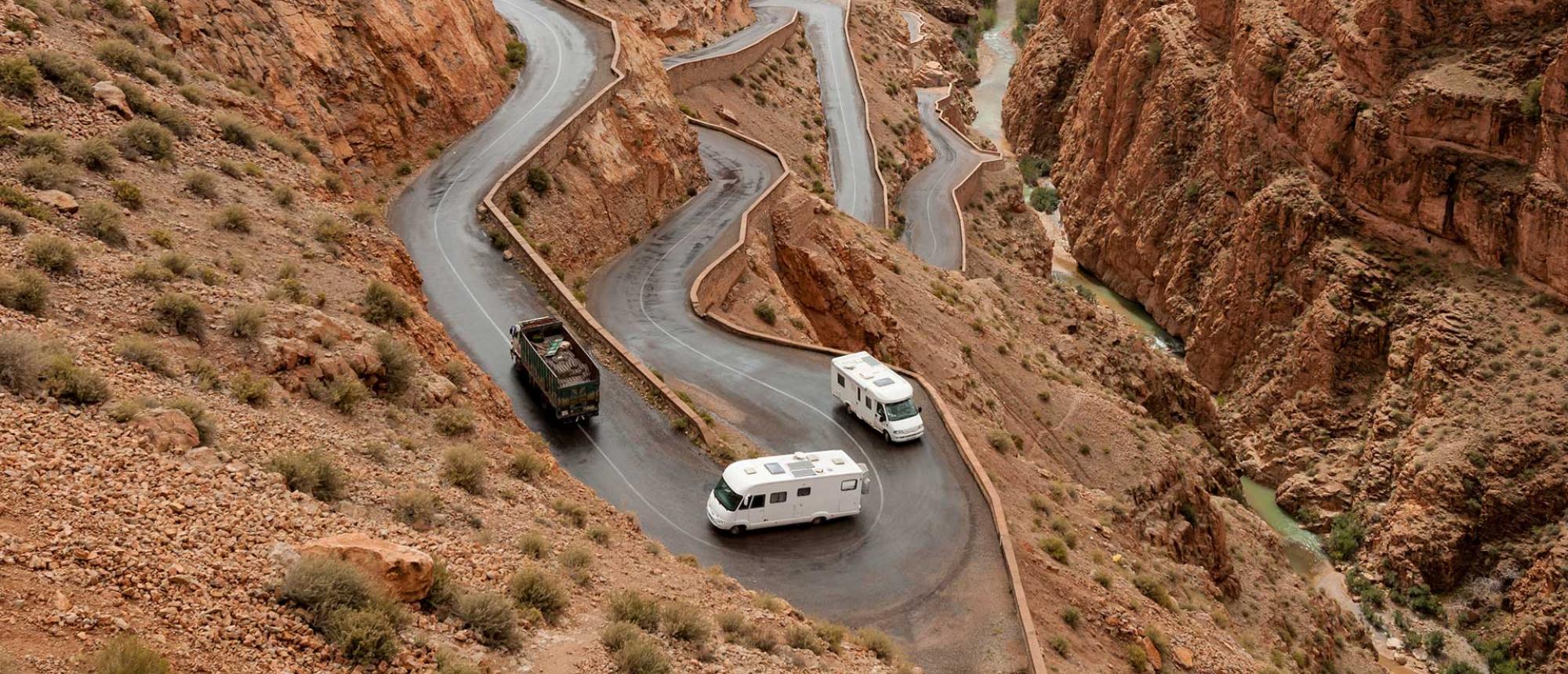
Morocco in a campervan or motor home: all you need to know
What better way to explore Morocco than by campervan or motor home?
You'll enjoy landscapes as you please, without having to worry about train times and hotel availability.
With its new Marseille-Tanger-Med route, La Méridionale whisks you off to discover the Kingdom of the far-distant setting sun. Our ship Kalliste is fully-equipped to ensure your comfort and your vehicle's security. After having enjoyed a relaxing crossing, you'll be ready to hit the road to imperial cities, fine sandy beaches and Moroccan desert oases.
15% de réduction avec le code LLD15
Pour célébrer le nouveau voyage au Maroc de Camille et Thomas, nos 2 "vanlifer" préférés 😍, bénéficiez d'une réduction de 15% pour partir vous aussi à l'assaut des routes marocaines au volant de votre camping-car et van aménagé.
Profitez de notre offre pour embarquer à destination de Tanger Med et Nador au meilleur prix !
Détails de l'offre
- Validité : jusqu'au 30/05/2025
- Traversées : sélection de dates jusqu'au 31/12/2025 (aller-retour obligatoire)
- Éligibilité : -15% sur véhicule de type Camping-Car/Van (non cumulable avec les offres en cours)
Comment réserver ?
- Cliquez sur le bouton "J’en profite" ci-dessous
- Saisissez vos critères de recherche puis LLD15 dans le champ "Votre code avantage" et validez
- Si votre traversée est éligible, la réduction s'applique et s'affiche à la dernière étape avant le paiement
Pour toute information supplémentaire ou pour effectuer votre réservation, notre équipe commerciale est à votre écoute au 0970 83 20 20 (service gratuit + prix d'appel).
Prepare your crossing to Morocco with your campervan or motor home
It's rather complicated to rent a campervan or motor home in Morocco. Only one professional agency exists in Marrakech. So, it's best to travel with your own vehicle or rent one in France.
Before heading to Morocco with your campervan or motor home, you'll need to carry out the usual checks: tyre pressure, oil and cooling liquid levels, battery charge, etc. It's best to do this upfront so you can hit the road! If you haven't used your vehicle for some time, do a thorough check-up before you leave to ensure your fridge, heating, water heater and even your air-conditioning are ready for new adventures.
The day you board, you'll need valid proof of identity. If you're French or from the European Union and your stay is less than 90 days, your passport will do, you don't need a visa. If you plan to stay more than three months, then contact your embassy. You can also extend your stay when you're in Morocco.
You'll also need your vehicle papers for customs. As well as the registration document, you'll need an insurance certificate covering Morocco. If the vehicle doesn't belong to you, you'll also need:
- a declaration from the owner authorizing you to travel to Morocco with their vehicle;
- or the rental agreement.
At customs, a customs officer will take your verbal statement but you've no duty to pay as long as you leave Morocco with your campervan or motor home. Otherwise, duty equivalent to a percentage of the value of the vehicle will be requested. To avoid having to pay several hundred or thousand euros in the event of theft or accident, contact your insurance company. Some insurance policies cover the return home of the damaged vehicle and/or the fees charged for leaving the territory.
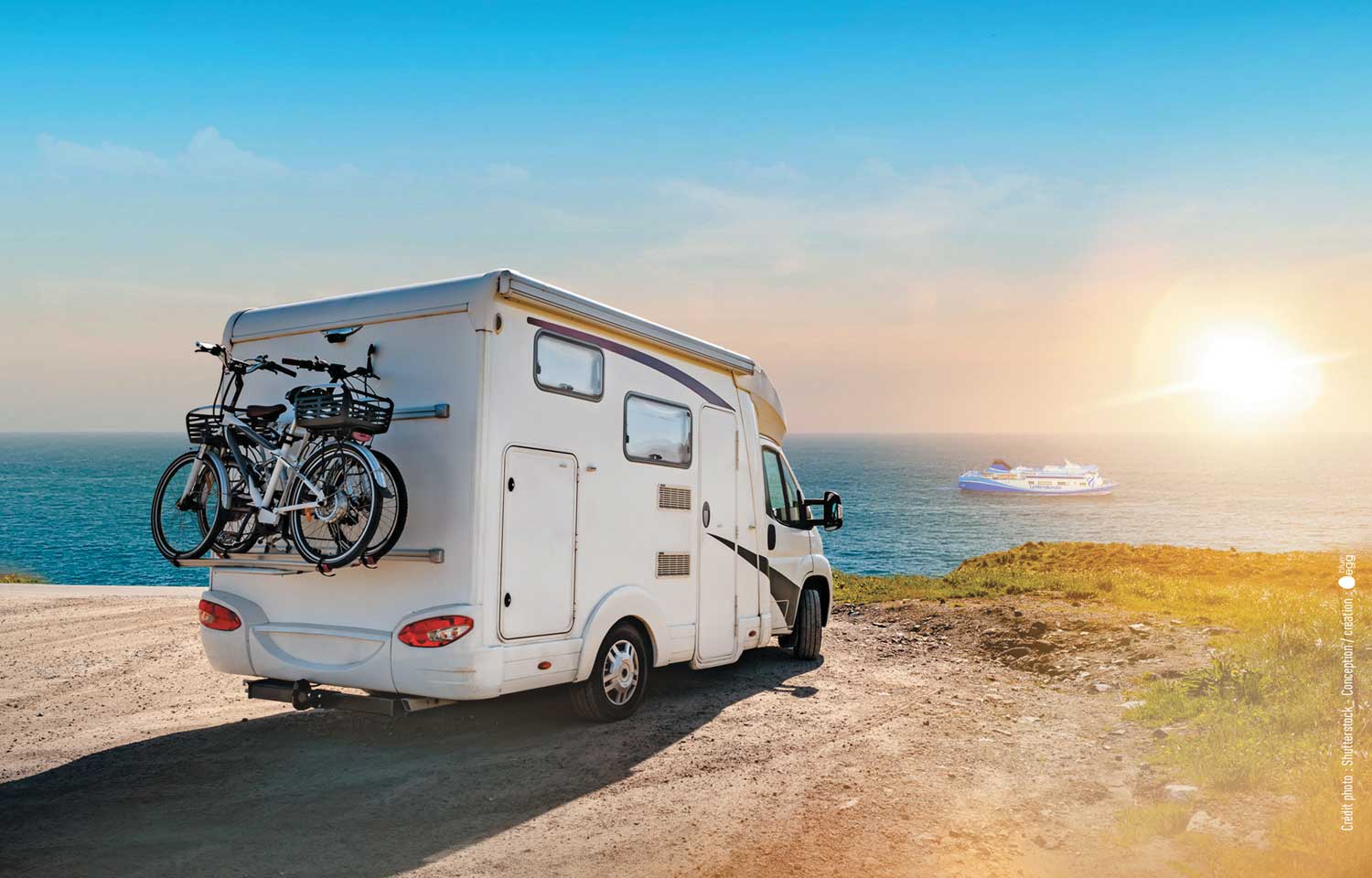

With La Méridionale, boarding for the ferry to Morocco begins 7 hours before departure.
Check-in close-out time is 2 hours before departure.
Once you've checked in for the boat for Morocco, our crew will guide you to the ship's parking deck. You'll park your campervan or motor home yourself in the space indicated by the staff who will also tell you to:
- set the handbrake;
- engage first gear;
- turn off your lights and disable your alarm system.
Our parking decks have a few 220 volt plugs that you can connect your campervan or motor home to during the crossing. When you board, let our staff know if you'd like to be parked next to a plug. Based on availability, you can charge your batteries and save autonomy.
Our boats are designed to accommodate passenger vehicles as well as trucks carrying cargo, irrespective of their size. Thanks to our crew's training and experience, they are perfectly able to install different loads. With La Méridionale, you can rest assured your campervan or motor home will sail under optimally safe and secure conditions.
Passengers cannot access the parking deck during the Marseille to Tanger-Med crossing.
Once you've taken everything you need for your trip across the sea, head to reception where our Maitre d' will tell you where your cabin is.
Laissez-vous guider par Léon !
Léon, c'est le camping-car "vintage" Peugeot J5 Hymer de Camille et Thomas, un duo d'aventuriers qui vient de passer 3 mois à parcourir les routes marocaines.
Précautions administratives à prendre avant le départ, budget à prévoir sur place ou encore meilleurs spots pour dormir, nos deux "vanlifers" vous disent tout !
Retrouvez leurs précieux conseils en forme de check-list pour préparer au mieux votre road-trip au Maroc : https://liveyouradventure.fr/voyage-aventure/ferry-maroc/
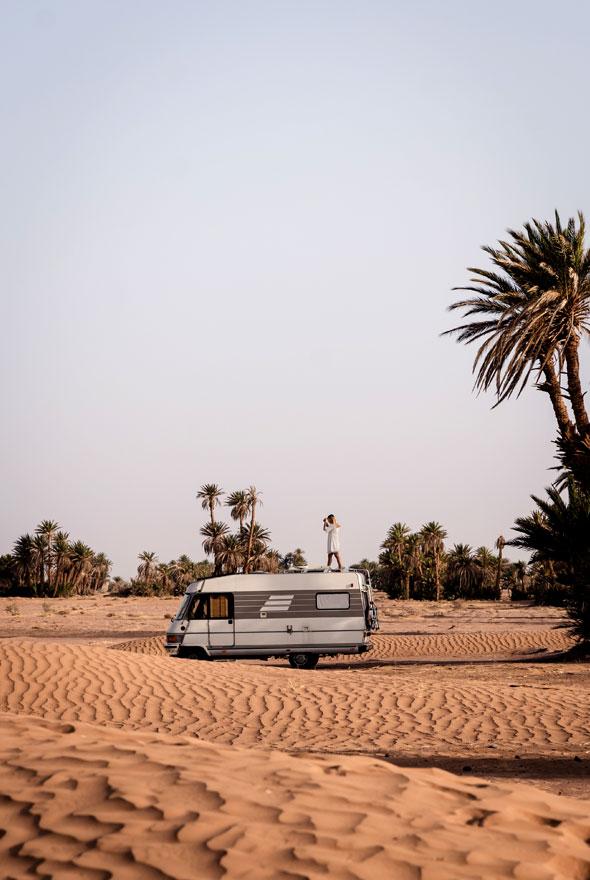
Driving your campervan or motor home in Morocco: what you need to know
With a French driving licence you can drive around Morocco in a campervan or motor home. As in most countries, your drive on the right in Morocco. The highway code is quite similar to the one we use but a few differences exist.
Speed limits, for instance:
- 40 km/hour in the centre of towns;
- 60 km/hour in other parts of towns;
- 100 km/hour outside built-up areas;
- 120 km/hour on motorways.
The speed allowed is indicated on signposts identical to the ones we all know. The police check vehicles frequently and use state-of-the-art equipment. If you are caught speeding, you have to pay a fine that can amount to several hundred euros.
Another point worth noting: alcohol is strictly forbidden behind the wheel. The driver's blood alcohol level must be 0. If you are found to be over the limit, you can be fined between 500 and 1,000 euros, have your licence suspended and even be sent to prison.
Like in France and other countries, driver and passengers are obliged to attach their seatbelts. You must also have a reflective vest, a warning triangle and a spare tyre in your vehicle.
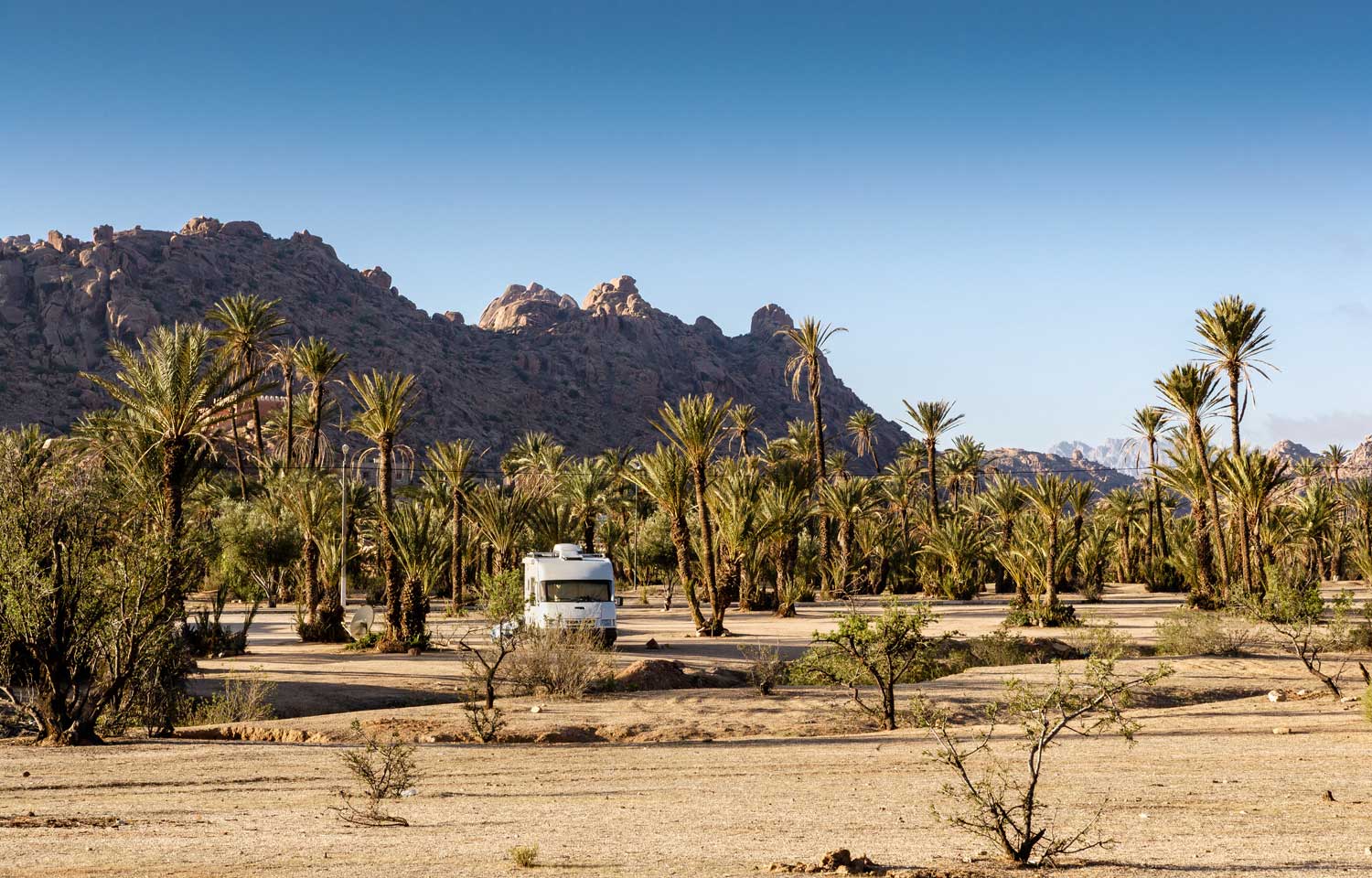

Motorway and tolls
The country has a safe, well-serviced motorway network. Outside major road infrastructure, the condition of the roads varies. Although some may have recently been resurfaced, others are more like tracks than national roads. Mountain roads can be rather impressive for drivers with little experience. A lot of these roads don't have crash barriers.
If you drive a campervan or motor home in Morocco at night-time, you may be in for some surprising encounters! Dromedaries and herds of goats are likely to pop out of nowhere. It's better to travel during the day so as to avoid setbacks.
Like in France and other countries, you have to pay to use the motorway. The toll depends on the distance travelled and the class of vehicle. Most campervans and motor homes are class 2. Count around 30 euros (300 dirham) if you're going from Tangier to Marrakech or 3 euros from Rabat to Casablanca. You can pay:
- by bank card;
- in cash;
- with Jawaz, the remote control bleeper so you don't have to stop.
Parking areas
Unauthorized "wild" camping is forbidden in Morocco irrespective of whether you're in a motor home, campervan, converted van or even a tent. If you set up camp for the night in an unauthorized area, you will be politely but firmly asked to go to the nearest campsite or parking area by the Royal Moroccan Gendarmerie.
On the Atlantic Coast, between Tangier and Agadir, and around large cities like Marrakech, campsites offer you all the comfort you need and more. Your children will definitely enjoy stopping off in a place that has a swimming pool, especially in summer. When in town, you can also park in a secure paying car park.
In the south and in less busy areas, there are fewer campsites. Nonetheless, you'll always find a solution to make sure you're not breaking the law. Petrol stations have rest areas and parking spaces for truck drivers and campervans and motor homes. And, in the countryside, families provide travellers with private land where they can stop off, in return for a small fee. These facilities are, of course, more basic, but it also means you can get to know some local people.
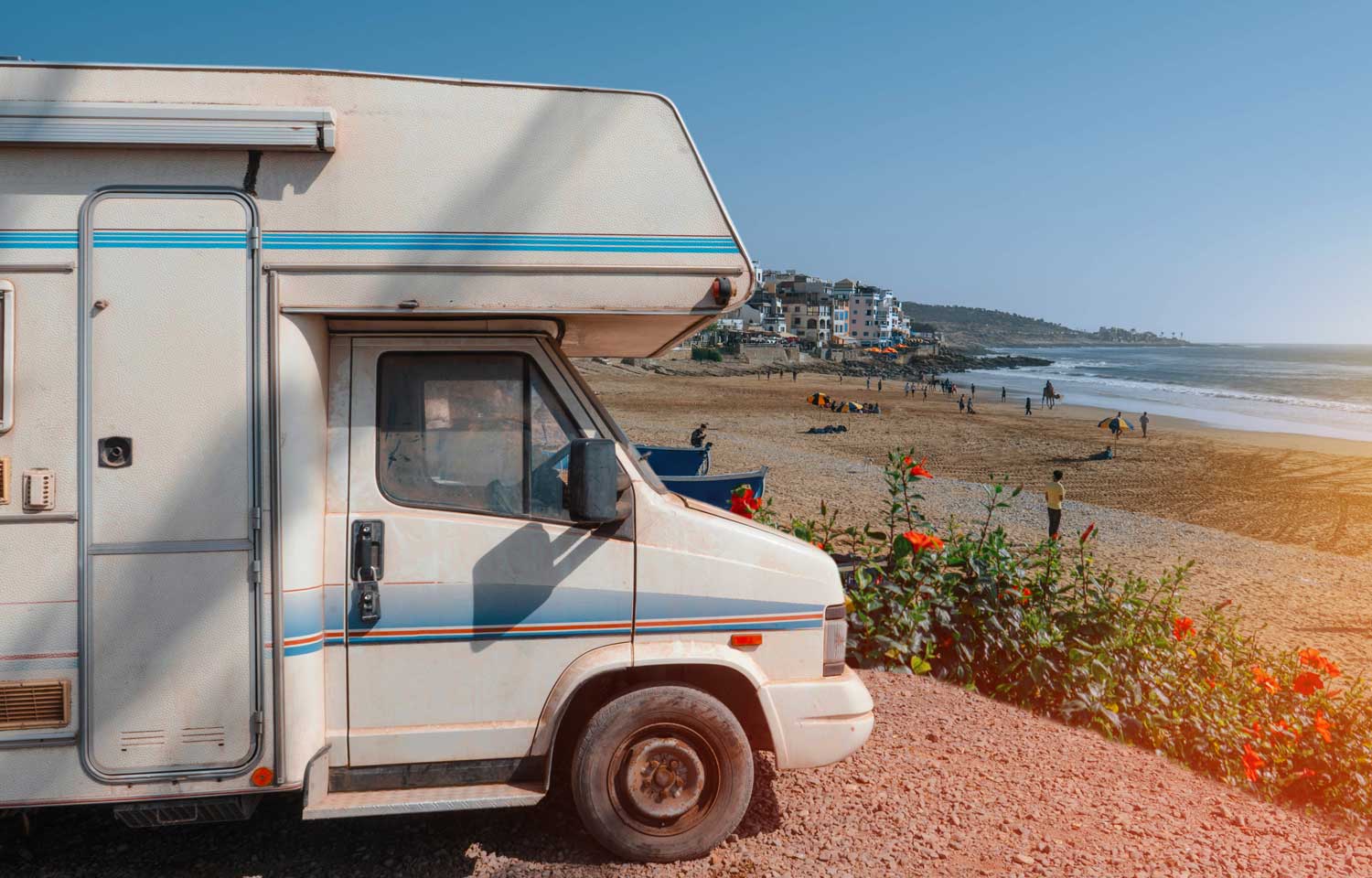

If you stay in a campsite, you'll have access to water and electricity. To be able to use the power supply, remember to take the longest extension lead you have and various fittings and piping to connect to the water supply. And, to make sure you're prepared for everything, it's best to bring along some inner tubes with you to seal your connections.
Most facilities are also equipped to let you drain your grey and black water. You can also ask to do this at a petrol station. Last but not least, you're also allowed to use the drains in towns, preferably at night, to be more discreet.
Gas and fuel are two other essentials for campervan and motor home travellers. Both are easy to find and less expensive than in France. However, you won't always be able to fill up your French gas bottle in Morocco. It's easier to buy one on-site and to refill it if need be. Remember to purge it well before use to remove any impurities that may have entered the bottle during filling!
Petrol stations can be found everywhere in the country. However, in rural areas, there are less of them. To make sure you don't break down right in the middle of the Atlas Mountains, avoid driving on your reserve.
When should you visit Morocco in a campervan or motor home?
Morocco enjoys a Mediterranean climate that attracts travellers all year round. However, there are regional variations and some seasons are better than others. It's up to you to choose when you want to go to Morocco based on what you wish to do... hiking, swimming, historic site visiting, etc.
Winter, between December and March, is considered the high season. At this time of the year, campervan and motor home travellers from all over Europe escape the cold and gloom to seek the sun and heat on the Mediterranean's right shores. In the kingdom, temperatures can rise to 25 degrees in the south and it only rains one or two days a month. However, nights are fresh on the Atlantic Coast and on the snow-capped peaks. Heading to Morocco in a campervan or motor home in winter means thinking ahead a little. Given the crowds of visitors, it's best to book your place in a campsite by phone the same day or the day before.
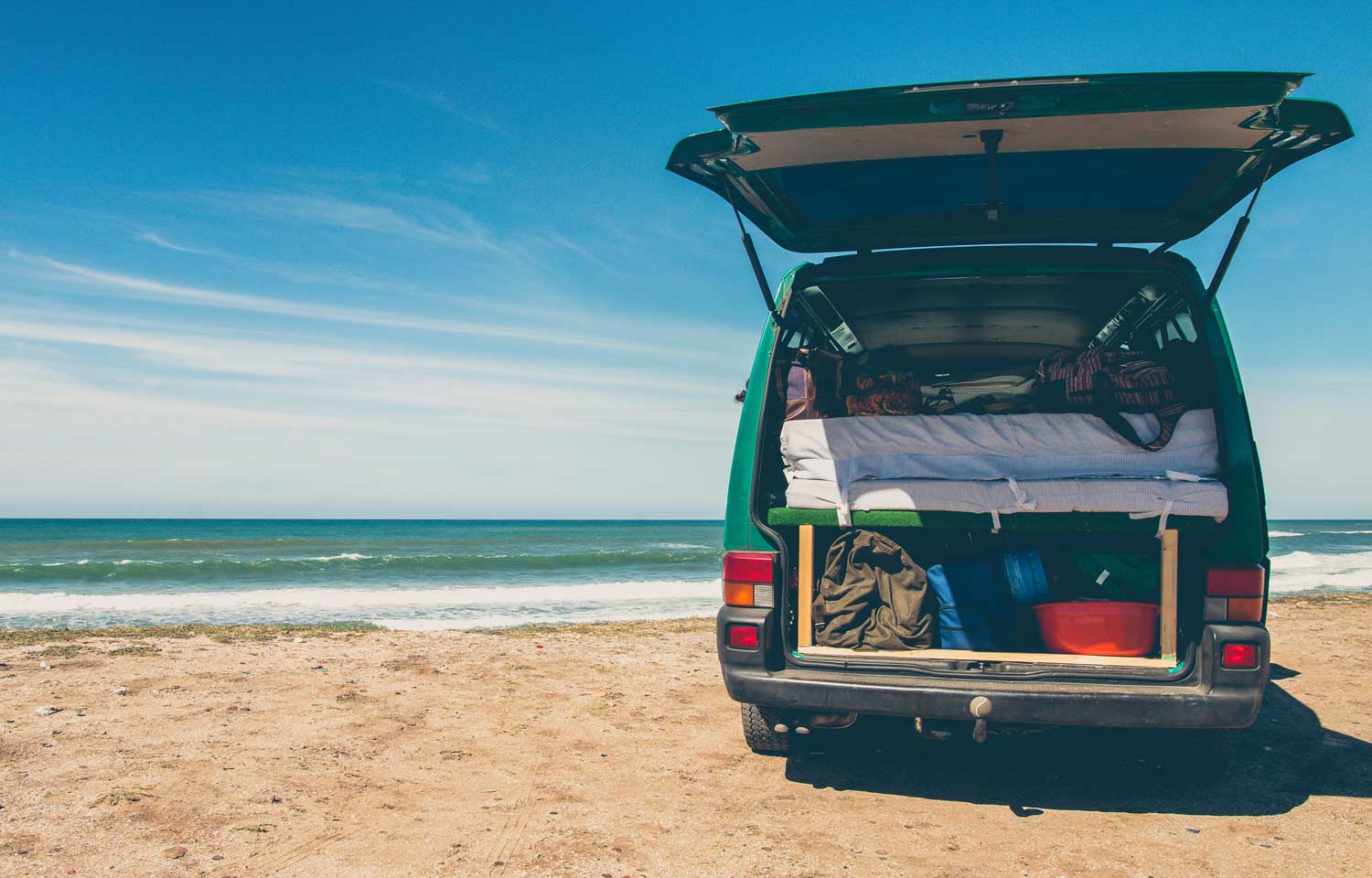

If you'd like to enjoy some time alone during your road trip, it's better to head to Morocco in spring or in autumn. Between September and November, most of the tourists will have left and you'll be able to enjoy the scenescapes, towns and beaches in peace. Although days are shorter, they're still very sunny.
Spring is the perfect season for visiting Morocco in a campervan or motor home. Temperatures range between 15 and 30 degrees depending on the regions and it hardly ever rains. And, what's more, the blossoming trees enhance natural sites' beauty even more.
In any event, it's not advisable to travel through Morocco in summer. In the centre and south of the country, you can expect heatwave temperatures, which limit activities. If you're planning to head to Morocco in July or August, it's better to stay along the Atlantic Coast to try and catch some fresh air.
Morocco in a campervan or motor home: routes and must-dos
Based on the time you have and what you wish to do, you can plan several different routes to visit Morocco in a campervan or motor home. In any case, you'll find a safe place to spend the night for a few euros, whether it's in a campsite, a petrol station parking area, a guarded car park or on private land.
On the imperial city route
If you head off for a dozen days to Morocco in a campervan or motor home, why not plan a trip to discover Morocco's imperial cities of Fez, Meknes, Marrakech and Rabat?
- First day in Tangier to lounge around in Perdicaris Park and Cape Spartel and to admire the vista over the Strait of Gibraltar.
- A trip to Rabat, the Chellah necropolis and the Kasbah of the Udayas.
- A stop-off in Casablanca to admire the Hassan II Mosque and its minaret, the largest in the world.
- Plan to stay a few days in Marrakech to explore the old town, its medina, Place Jemaa El-Fna and the secret palace. In the modern Gueliz district, the Jardin Majorelle with its blue façades is a must-not-miss. And, if you still have some time, head to the palm groves for a camel ride.
- On the route to Fez, Ouzoud waterfalls and the macaques, Khenifra's lakes , the cedar forest at Azrou and Ifrane National Park
- In Fez: the palaces, the decorated doors and the medina, the largest in the country.
- In Meknes, don't miss the mausoleum of Sultan Moulay Ismail Ibn Sharif, one of the only religious buildings in Morocco that is accessible to non-Muslims.
- Then to finish off, head for Volubilis, the archaeological site from the Roman era.
- Now, it's time to travel back to the port of Tanger-Med to board the ferry to Marseille.
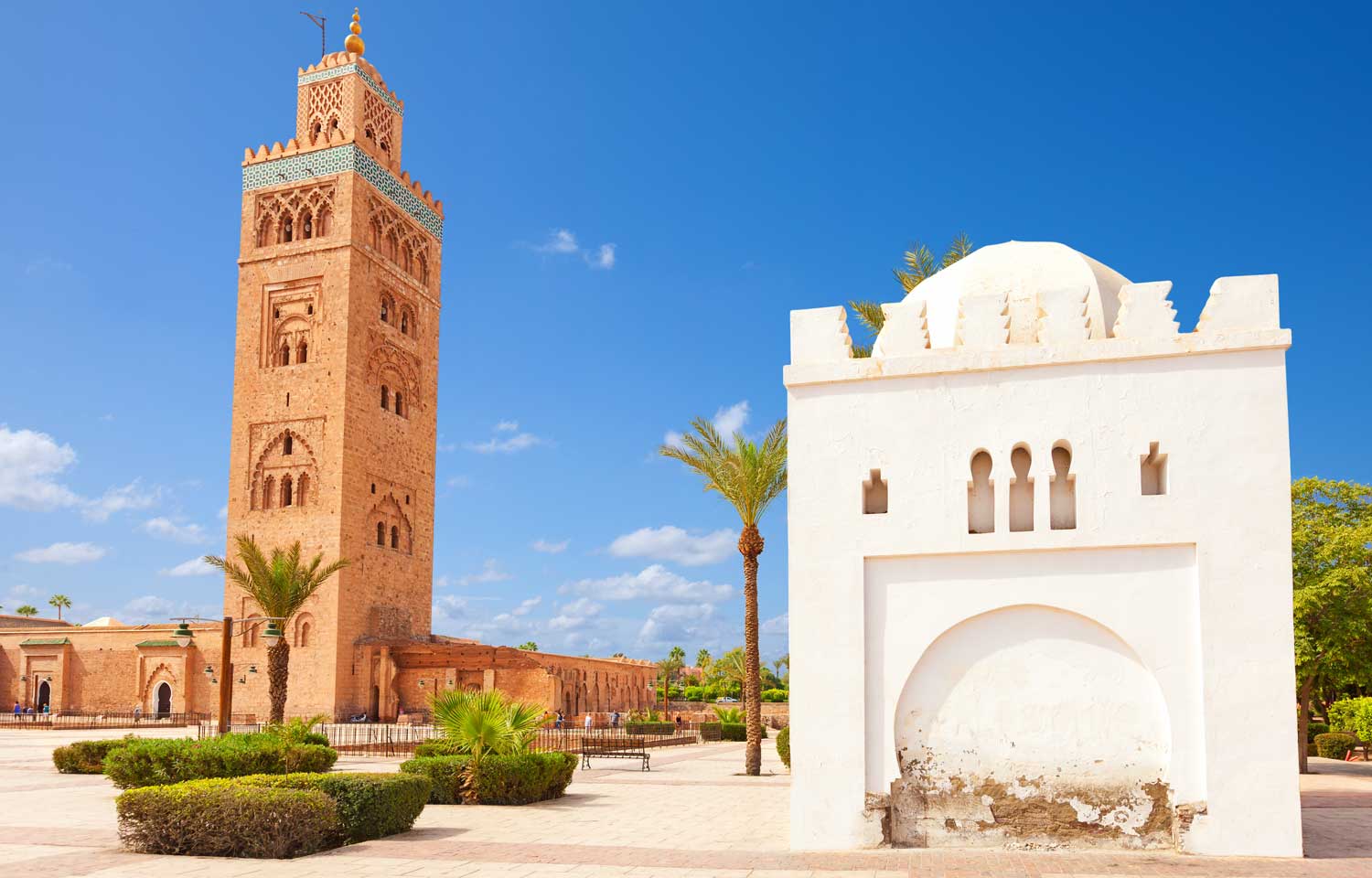

Morocco via the coast
Have you decided to enjoy your summer holidays in a campervan or motor home with your children? Well, you're probably wondering where to go to in Morocco to escape the heatwave. Along the Atlantic Coast, temperatures rarely exceed 30 degrees, even in Agadir and the far south. And, with this road trip mixing seaside activities and cultural visits, you'll always know what to do in Morocco, even if it rains.
This route is also suitable for sporty people who love surfing, diving and bodyboarding as well as those who just adore the sea :
- Arrival in Tangier: head for the old town with its white façades before going to Sidi Kacem, Sol and Malabata beaches.
- Go to Asilah for its street art and its medina that overlooks the ocean.
- Laraches and the Roman ruins of Lixus, Jean Genet's grave and beaches that invite to swim and enjoy water sports.
- Kenitra for a day on the beach, an excursion to the lake of Sidi Boughaba or to the Maamora oak Forest.
- In Safi: the fully-restored 15th-century Portuguese fortress, the fine sand of Lalla Fatna Beach, as well as the Sidi Bouzid surf park.
- In Essaouira, a boat trip to Mogador Island, a photo shoot of the ruins on Diabat Beach and a surfing session in Sidi Kaouki.
- Tafedna, a fishing village with white and blue houses.
- Agadir: Morocco's biggest souk and six kilometres of beaches sheltered from the wind.
For the return journey, you can retrace your route or leave the coast and go through the imperial cities of Marrakech, Fez and Meknes. Before boarding the boat for your trip back to Marseille with your campervan or motor home, make a stop-off in Tetouan.
The town stands out through its Spanish influence.
Here, you'll discover Lebbadi Palace, one of the best preserved in the kingdom, as well as a host of museums.
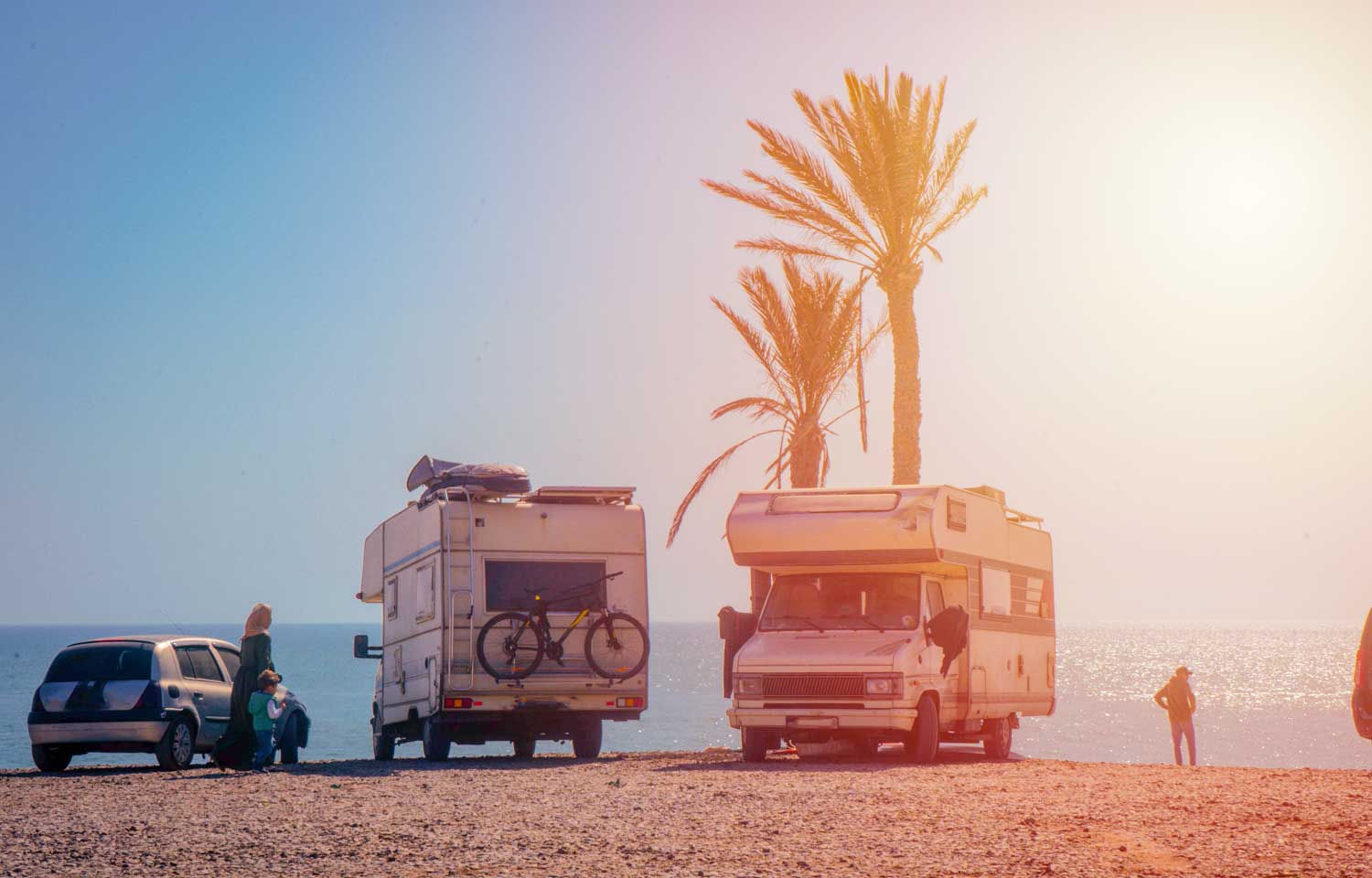

A trip weaving between the ocean and desert
Have you planned to stay a few months and you're wondering what to visit in Morocco? Well then, this road trip will take you on a journey to discover the many facets of Morocco, from beaches to the desert and from towns to mountains.
- When you arrive in Tangier, stroll along the seafront and through the maze of alleyways in the medina.
- First stop-off at the Volubilis archaeological site, a Unesco-listed world heritage site.
- A day in the imperial cities of Fez and Meknes.
- Then weave your way across Ifrane National Park. Make several stop-offs to go hiking around the lakes, to explore the caves and to swim in the springs.
- Go through Khenifra National Park to stroll through the cedar trees.
- Travel along the Dadès wadi, stop off in Dadès Gorges to admire the sunset from the top of the high ochre plateaus.
- Take time out in Roses Valley to wander through Berber villages and through fields of Damask roses.
- Spend a day in Ouarzazate, the Moroccan Hollywood to take photos of the film sets of Lawrence of Arabia, Game of Thrones and the kasbah with its adobe architecture.
- The route of a thousand kasbahs: discover Agdz, Tamegroute and Zagora, the last town before Timbuktu and the Sahara Desert.
When you arrive at the edge of the desert, you can head for Agadir and travel along the coast back to Tangier. But, if it's your first trip to Morocco, then head north to Marrakech. After a few days in the ochre-coloured city, it will take you less than a day's drive to reach the coast at Essaouira.
Have you decided to plan your next holidays in Morocco in a campervan or a motor home?
La Méridionale operates three weekly crossings between Marseille and Tanger-Med. On-board we provide you with everything you need to ensure your journey is relaxing. We give you the option of full board, top-quality bed linen and spaces designed to entertain as well. Whether you head off alone, with your partner, with friends or with your family, we look forward to seeing you on-board Kalliste.
